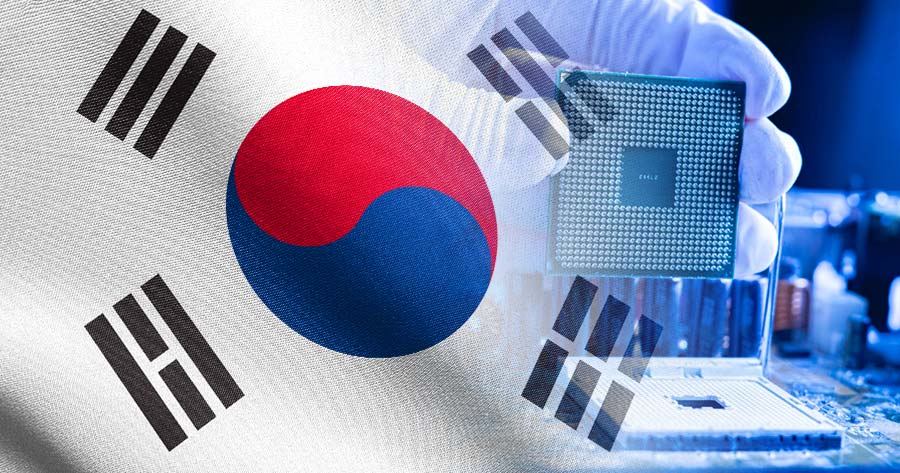South Korea has announced plans to amplify its financial aid for domestic chipmakers in the coming year, an attempt to secure an industry that may face adversities due to the expected policies of the forthcoming Trump administration and escalating competition from Chinese contenders.
In 2025, government-backed organizations are expected to provide financial aid totaling 14.3 trillion won ($10.2 billion) in the form of loans, insurances, and guarantees, as indicated by the Finance Ministry.
Moreover, a considerable segment of the 1.8 trillion won required to relocate power cables underground in southern Seoul’s chipmaking areas will also be financially supported by the government.
The fiscal stimulus is a continuation of the 26 trillion won package inaugurated in July, a part of which will be reflected in next year’s aid amount. The government plans to increase the tax credit rate for semiconductor firms by 10 percentage points and establish a 4 trillion won national artificial intelligence computing center by 2030.
The decision to bolster support for this key segment from South Korea coincides with President-elect Trump’s vow to revive US manufacturing and reduce dependency on overseas supply chains, instigating further urgency to protect the growth of South Korea’s chipmaking industry.
In its announcement, the ministry indicated the possibility of escalating economic uncertainties post the US administration’s inauguration while highlighting the continued benefits in defense and shipbuilding tied to US-South Korean relations.
Meanwhile, Samsung Electronics, South Korea’s tech giant, is constructing a semiconductor plant in Texas, supported by subsidies under the Biden administration’s Chips Act – a program which President-elect Donald Trump’s team has consistently criticized during the election campaign.
The Finance Ministry also indicated that China could intensify its efforts to secure its place in South Korean supply chains, leading to an increased demand for Seoul to elevate the competitiveness of its tech sectors.
Technology exports contribute approximately one-third of South Korea’s overseas shipments. With particular demands for semiconductors used in AI development, the economy is forecasted to grow at least 2% this year compared to 2023.
However, economists are less sanguine about next year, given recent signs of weakening export growth and apprehensions about the Trump administration’s stance on US trade partners post his January office assumption.





